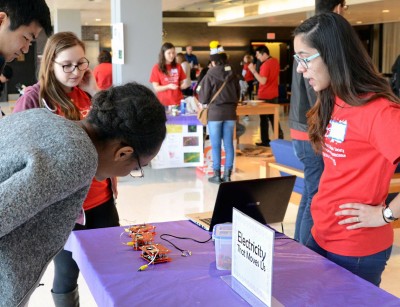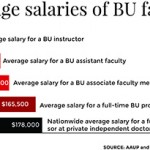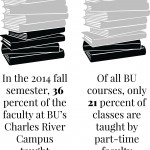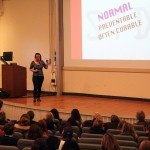
In order to promote brain research and encourage community involvement, Boston University’s Mind and Brain Society and the Undergraduate Program in Neuroscience hosted the first B.R.A.I.N Day Sunday.
B.R.A.I.N Day, which stands for Bringing Recognition And Interest to Neuroscience, is part of global Brain Awareness Week through the Dana Foundation. More than 100 students, parents and children came to the Ziskind Lounge of the George Sherman Union to learn about growing advances in neuroscience and brain research.
“We are trying to introduce neuroscience to the elementary and middle and high school students, and show them what the brain is, what it does, what neuroscience is, to get them excited about the brain, brain research and potentially introduce them to something they might want to study down the road,” said Ashley Hoesing, the UPN manager who helped organize B.R.A.I.N Day.
Attendees had the chance to explore interactive booths and exhibits, including one exhibit that used electromagnetic currents to temporarily suspend vestibular senses that affect balance, and a station that controlled action potentials to make a cockroach’s leg move to music, each designed to showcase different aspects of neuroscience.
Hoesing said although the exhibits are aimed at younger children, B.R.A.I.N Day was expanded this year to reach an even larger audience.
“We wanted to get the BU community excited about the brain as well, so we invited anybody and everybody who has BU ties,” she said. “It is important that it is accessible, so we wanted to keep it free. We have a bunch of different age appropriate activities, and we just wanted to make it as accessible to as many people as possible, so we have been promoting it pretty hard this year.”
Elizabeth Tingley, a senior in the College of Arts and Sciences and an organizer of B.R.A.I.N. Day, said it was important to host the program because of the topic’s widespread relevance.
“This event is important because the brain is important to all of us, regardless of age or interests or background or major or anything,” she said. “Because it is a part of us and really controls how we interact with everything and every single part of our lives and how the world works, and it is important to learn a little bit about it and present it in a fun way, so that it’s not boring like in class.”
India Smith, a freshman studying neuroscience in CAS, said she volunteered at B.R.A.I.N Day to give children the opportunity to learn more about neuroscience and the brain.
“Neuroscience is the most fascinating science, I feel, but it is also one of the least known about and talked about, so the more people we have trying it, the closer we can get to finding cures for things like Alzheimer’s,” she said.
Michelle Kim, a freshman in the College of General Studies, described B.R.A.I.N. Day as “fun and interactive.”
“It actually helped reassure me that I want to study neuroscience, so it was really helpful,” she said.
Kim said she has a personal motivation for studying and practicing neuroscience.
“My grandma has Alzheimer’s, so I have this drive to succeed in neuroscience, and I want to do research eventually towards Alzheimer’s, and also it’s such a new science that is emerging, so there are a lot of opportunities in the field,” she said.
Ross Hurlock, a freshman in CGS, said he attended B.R.A.I.N. Day simply because he was curious.
“Learning about neuroscience is important, because it has a direct impact on a lot of people and how they live,” he said. “My younger brother is autistic, and he has a lot of trouble connecting things to other things, so learning about this is very enlightening, and it’s a good way to learn more about several different medical conditions.”














Yes i agree with you neuroseience will make a direct impact on peoples life on they are are living and it is a good post and thanks for sharing.